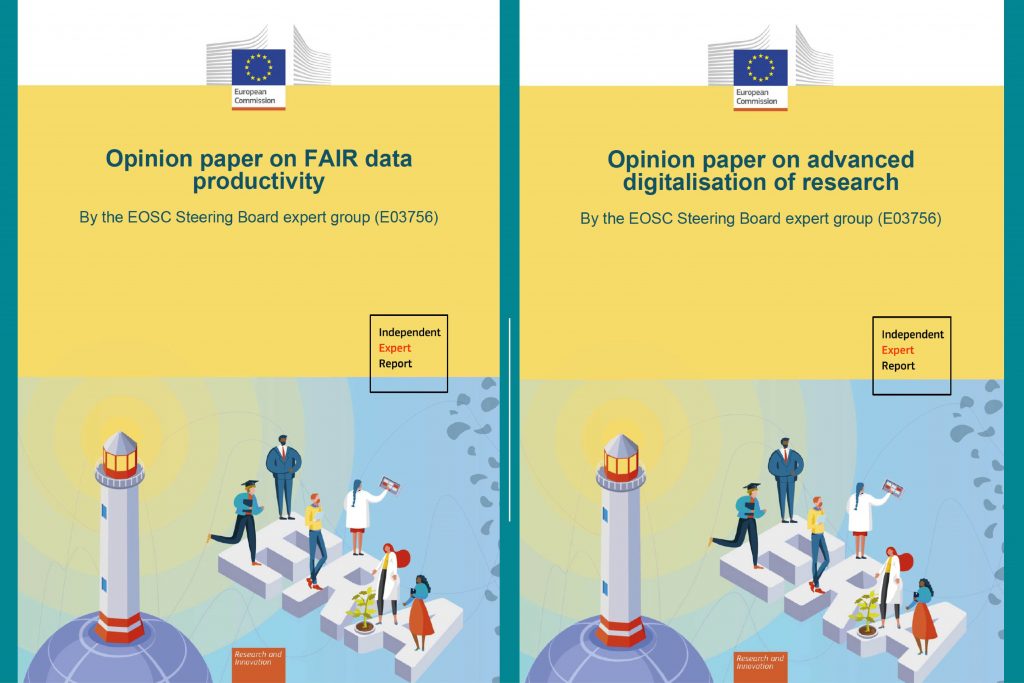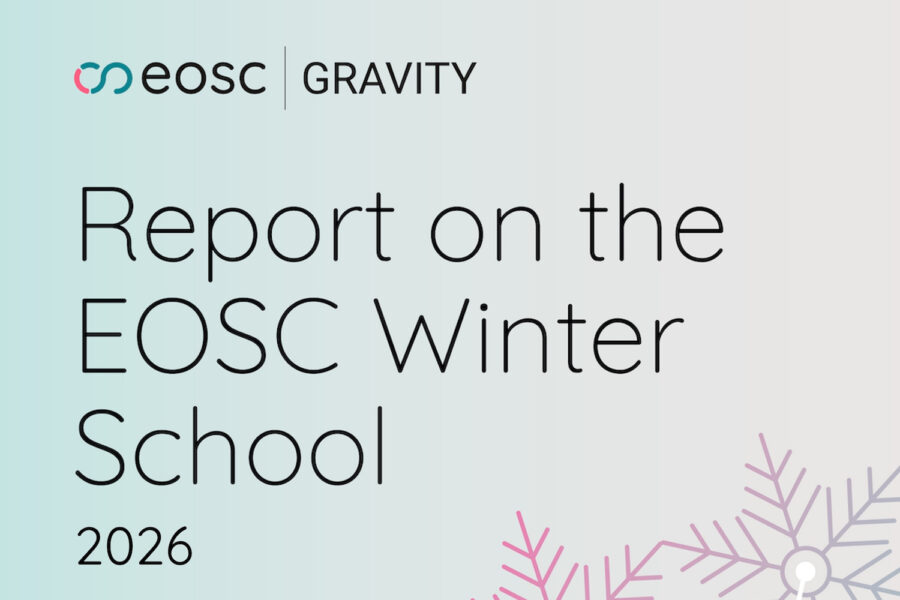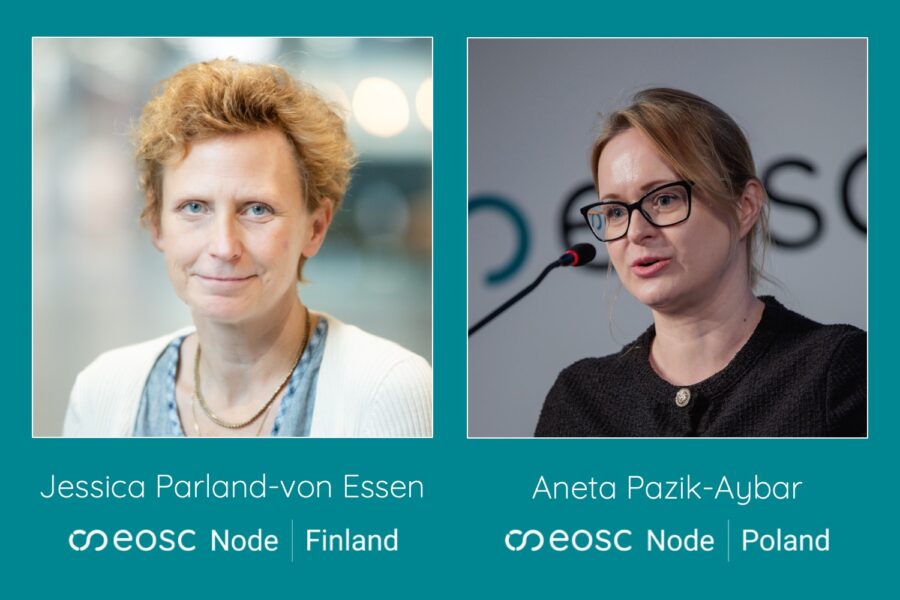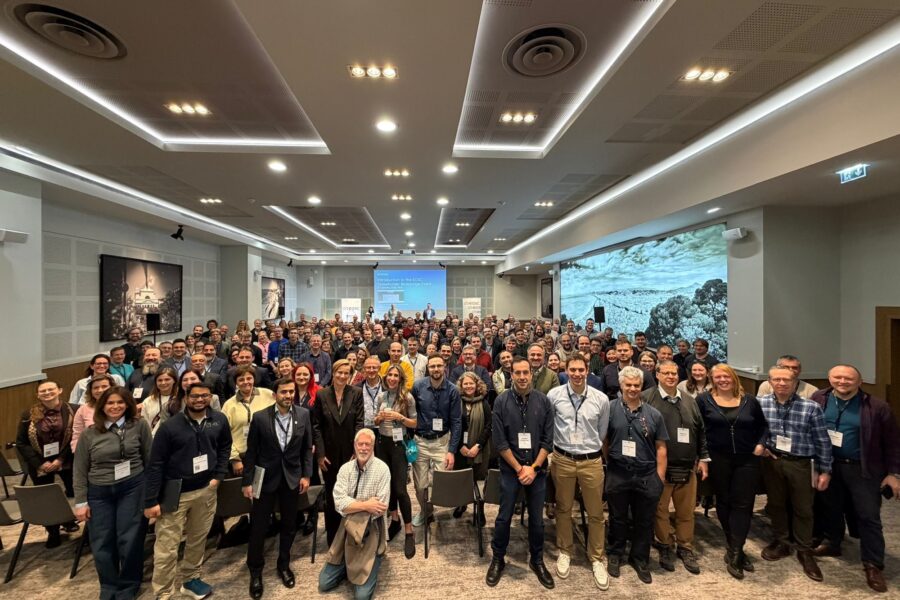The EOSC Steering Board (EOSC-SB) expert group’s Policy Sub-Group, in collaboration with the ESFRI-EOSC Coordination Task Force, has published two opinion papers analysing a set of key disruptive concepts and practices connected to the construction and future operation of EOSC.

The two independent expert reports, centred on FAIR data productivity, and advanced digitalisation of research, were published by the European Commission’s Directorate-General for Research and Innovation in May 2024 and are available in the repository of the Publication Office of the European Union. Read the high-level summaries provided below.
Opinion paper on advanced digitalisation of research
The Opinion paper on advanced digitalisation of research identifies the state-of-the-art of advanced research digitalisation and the bottlenecks to be addressed to make a fully operational EOSC.
The report concludes that research reproducibility and data usability will be improved if advanced digitalisation of data collection, validation, analysis, and simulation is developed and becomes a common practice of the research community. This would enforce Open Science principles and policies, creating a critical mass of Quality Assessed FAIR Data (QAFAIRD) and research objects, and enabling reliable and secure Artificial Intelligence, Machine Learning and Virtual Research Environments.
Opinion paper on FAIR data productivity
The Opinion paper on FAIR data productivity explores how to efficiently populate FAIR data space with high-quality content that would enable reliable Machine Learning and facilitate the use of Artificial Intelligence tools in support of research efforts.
In the report, the EOSC Steering Board identifies key recommendations developed upon consultation of the research community. It draws from insights from internationally-operated Research Infrastructures, which have already achieved significant results in data production, curation and rule sharing. Working both within and across thematic communities, these institutions can inspire federation and generalisation at the full scale of research and innovation activities.



